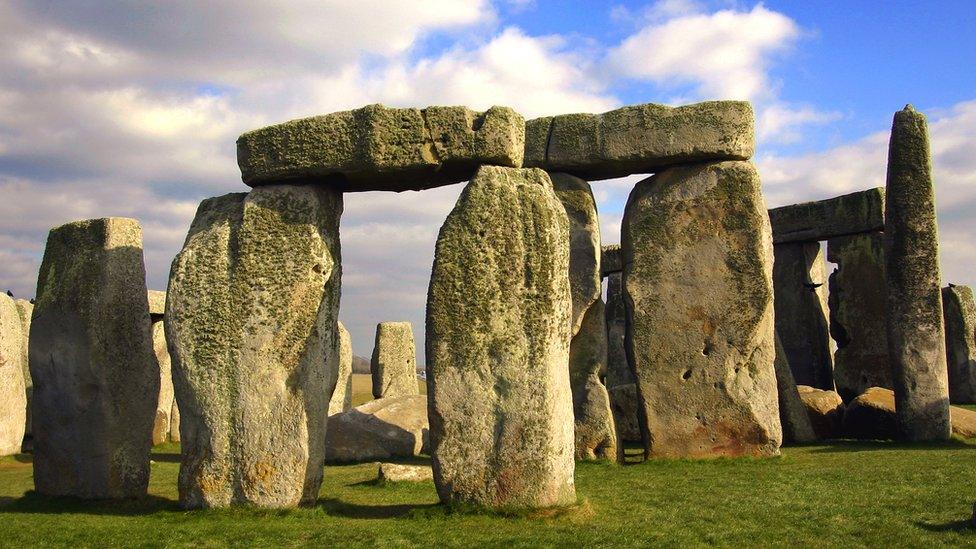Stonehenge tunnel: Row over building clause in deeds
- Published
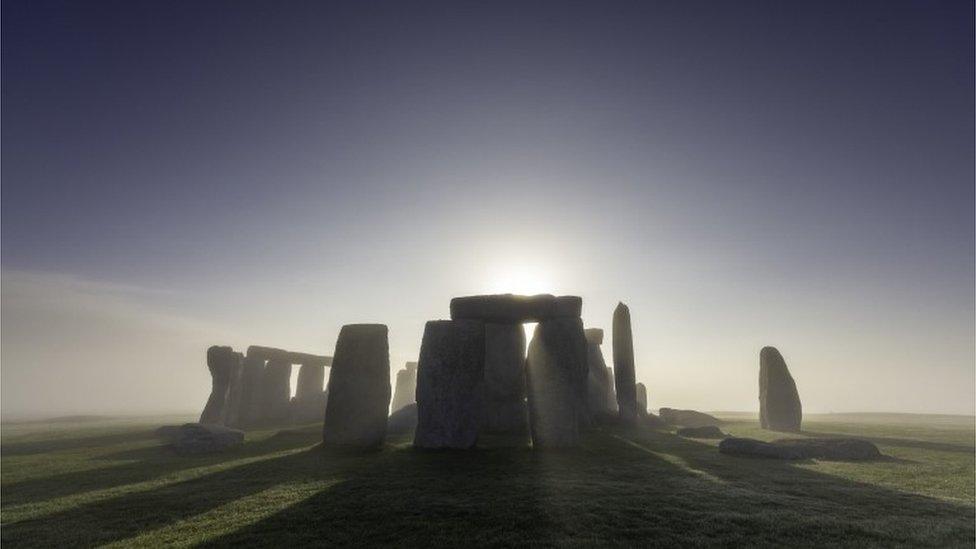
Campaigners say the deeds prevent work close to the stones
Plans for a controversial road tunnel near Stonehenge could be blocked because of conditions in the ancient monument's deeds.
The government wants to build a 1.9 mile (3km) tunnel past the Neolithic stone circle.
But when the monument was gifted to the nation by Sir Cecil Chubb in 1918 its deeds contained conditions.
Highways England said it believed the proposed tunnel did not fall within the covenant's boundary.
The issue was raised during a Planning Inspectorate preliminary meeting into the application to build the tunnel past the stones.
Campaigners claim the current plans for the tunnel would breach one of the restricted covenants in the deeds from 1915 that were made part of the condition of the gift to the nation three years later.
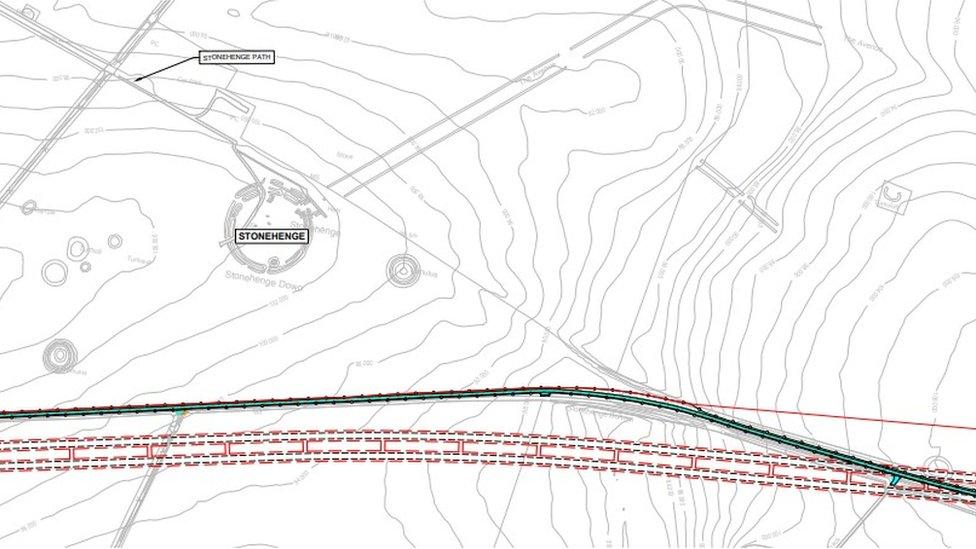
The plans appear to show the tunnel passing at about 375 yards
They said the document prevented building work within 400 yards (365m) of a milestone just north of the monument, and plans show the tunnel within about 375 yards (343m).
However, a spokesman for Highways England said their interpretation of the covenant only prevented building on the northern side of the site and only referred to above-ground construction.
He said the deed was mentioned during a previous planning procedure for a tunnel in 2004 and it "added no material weight to the discussion".
Andy Rhind-Tutt, the chairman of Amesbury Museum and Heritage Trust, raised the subject during the meeting and asked how they intended to deal with the "restricted covenants".
"My question is, have those deeds been presented to the panel and if not, why not," he asked.
Several other groups, including the Stonehenge Alliance which opposes the tunnel, backed the view of the museum trust.
Allow X content?
This article contains content provided by X. We ask for your permission before anything is loaded, as they may be using cookies and other technologies. You may want to read X’s cookie policy, external and privacy policy, external before accepting. To view this content choose ‘accept and continue’.

Highways England was asked at the inquiry to provide a "comprehensive reply" to the Planning Inspectorate about the deeds.
The government wants to build the tunnel to hide the busy A303, but opponents claim it could destroy archaeological treasures and scar the landscape.
Highways England said the design would "restore the tranquil environment and setting of the monument".
The tunnel is part of a £1.6bn programme to upgrade the A303, which links the M3 from London to the M5 in the south west.
A public consultation into the scheme ended in April 2018. Work on the project is due to begin in 2021.
- Published2 April 2019

- Published6 December 2018

- Published6 December 2018
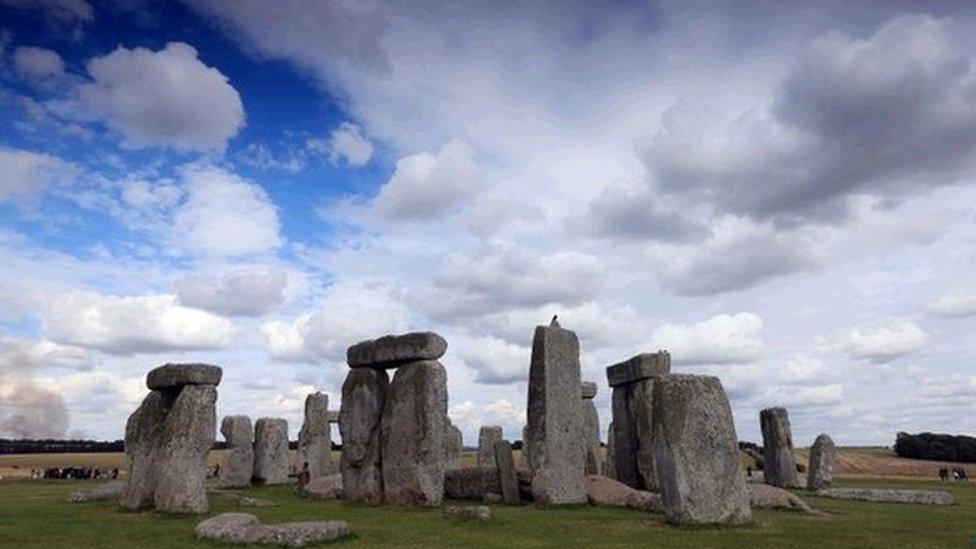
- Published19 October 2018
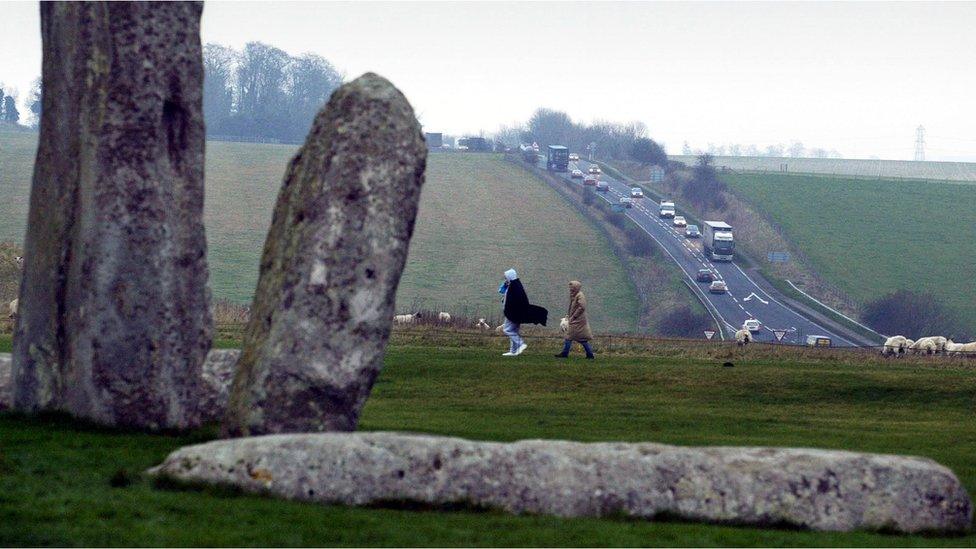
- Published26 April 2018
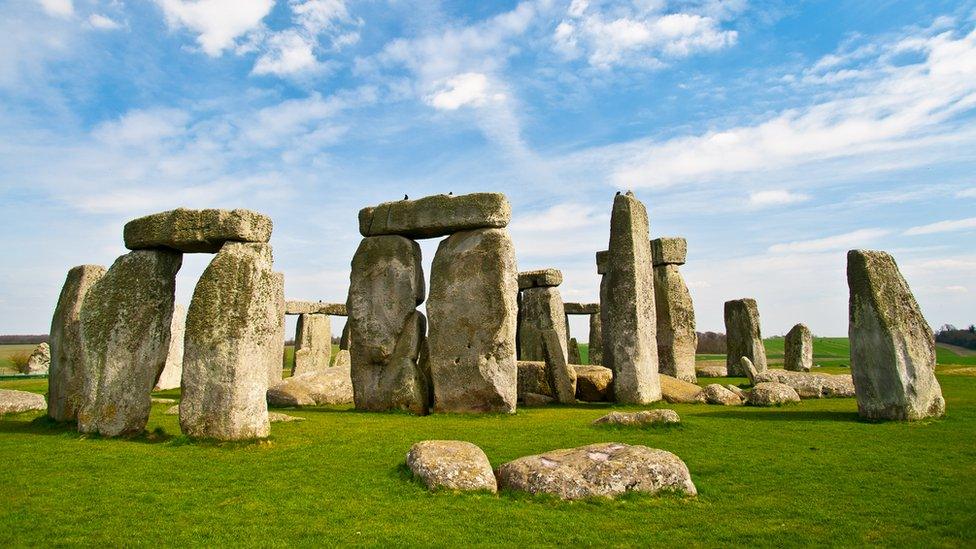
- Published6 March 2018
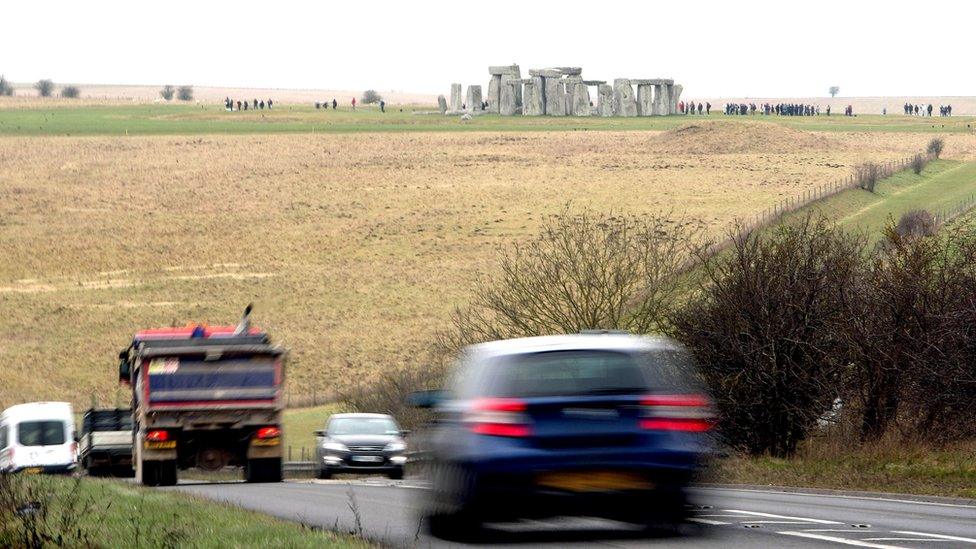
- Published8 February 2018
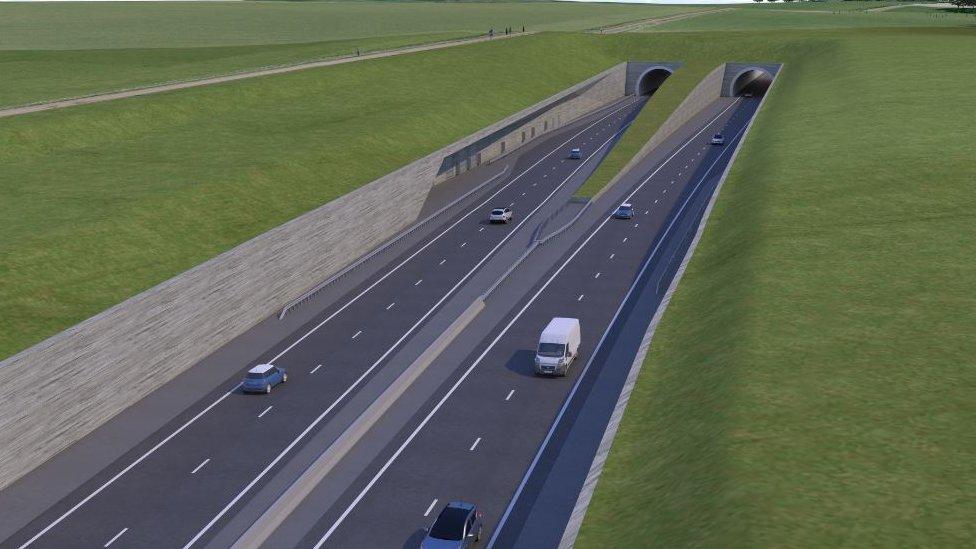
- Published15 June 2017
